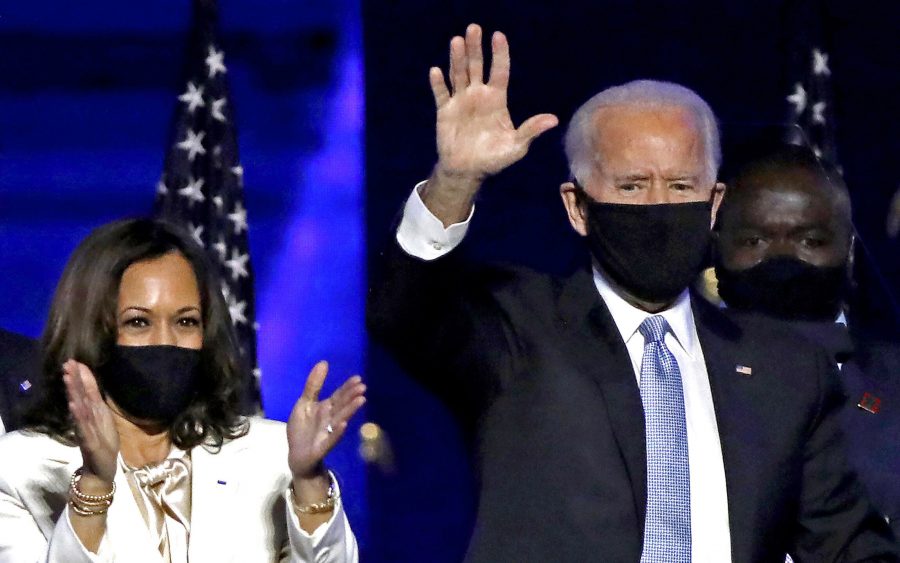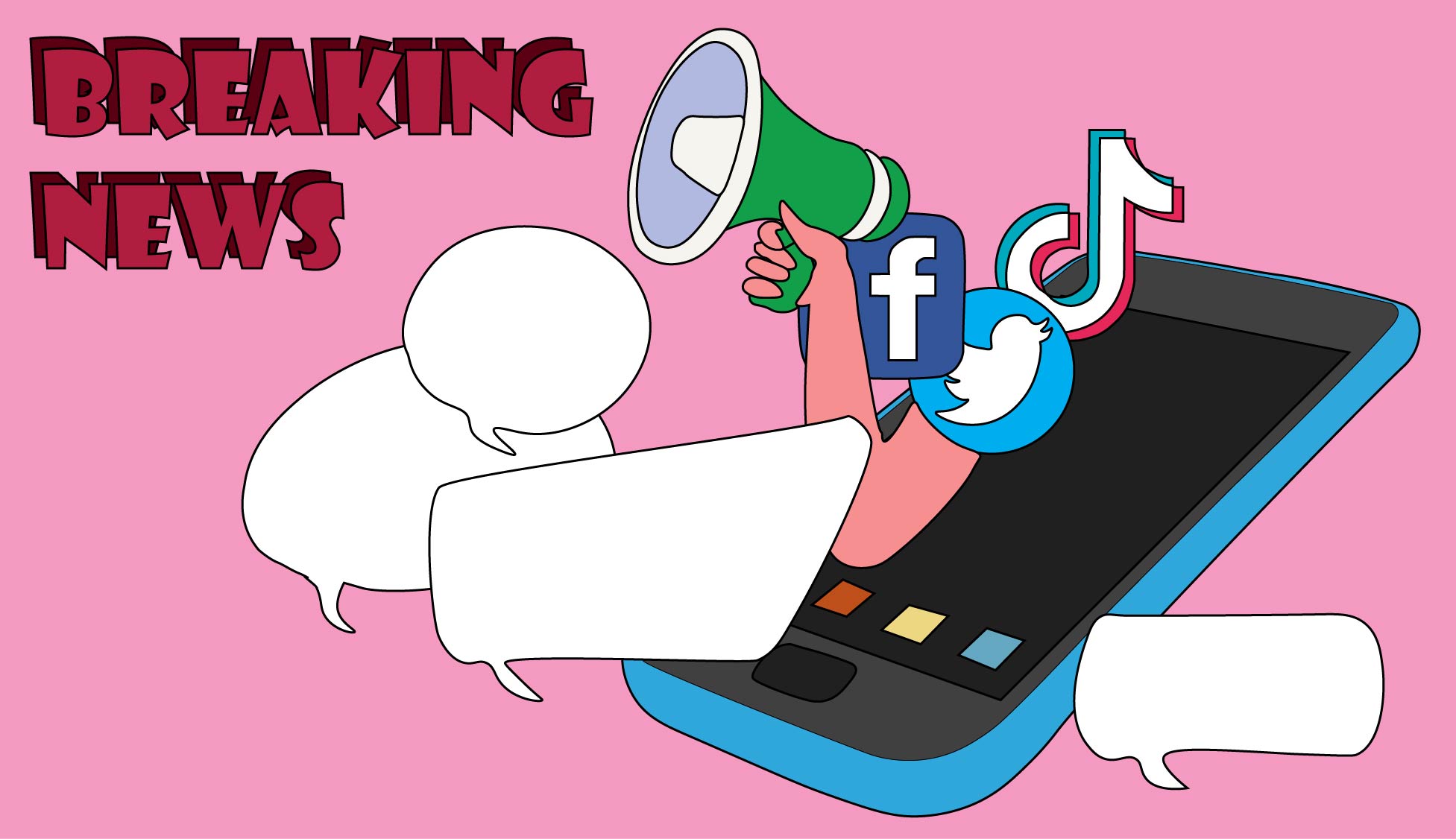[Opinion] President Joe Biden’s stimulus bill is the first step in overcoming a history of financial lackluster support
TNS
Vice-President-elect Kamala Harris and President-elect Joe Biden celebrate with supporters after declaring victory in the presidential election at the Chase Center in Wilmington, Delaware, on November 7, 2020. (Carolyn Cole/Los Angeles Times/TNS)
March 16, 2021
On Thursday, March 11, President Joe Biden signed a $1.9 trillion stimulus bill. This, amongst other things, extends the $300 per week unemployment insurance boost, allocates the funds for $1400 stimulus checks and expands the child tax credit. It further puts billions of dollars into funding for vaccinations, rental assistance and state relief.
The bill, which is one of the largest spending packages in United States history, is aimed to sharply reduce child poverty and expand a myriad of programs that will expand economic security for large swaths of the country. Yet, despite the obvious benefits of such a hopeful piece of legislation, not one Republican senator voted for the bill.
Arguably more disappointing than the severe lack of Republican votes was the apparent capitulation of the Democratic Party, particularly Vice President Kamala Harris, on the issue of the $15 minimum wage. Despite this being an overwhelmingly popular policy, it was voted down in the Senate, with eight Democrats breaking ranks. The provision, originally removed from the bill by the Senate parliamentarian for breaking reconciliation rules, could have been easily restored to the bill by Harris as she has the power to override the parliamentarian.
However, the main takeaway here is an ideological one. There is a reason that no Republicans voted “yes” on the stimulus bill, and why eight Democrats voted “no” on the decision to include a $15 minimum wage within the stimulus bill. There is a reason that early in the negotiation process, some Senate Republicans attempted to convince Biden of a $600 billion counter offer.
This ideological monster that lurks beneath the shadows preventing Americans from essential support has a name: austerity politics.
In the 1980s, President Ronald Reagan governed on a platform that is now a dominant concept of Republican Party ideology: trickle-down economics. The idea is simple; cut taxes, and the rich will invest more in their businesses, subsequently causing greater economic prosperity for everyone and enabling the wealth to “trickle down” to the average citizen.
Predictably, this reliance on the market to help disseminate wealth throughout the masses has been observed to be an utter failure. A study conducted by the London School of Economics that analyzed the last 50 years of varying forms of international trickle-down policies found that while these policies lead to greater income inequality, they fail to have any significant effect on economic growth or unemployment.
These policies, which mainly serve as an excuse to allow wealth to cluster in the hands of the few, are coupled with the previously mentioned austerity politics and a lack of spending in essential areas either as a means to incentivize work or to manage the budget deficit. This could have been done with higher taxes, but that’s obviously off the table for the rich.
One such area is health spending. America is one of the only developed nations without some form of socialized medicine, and instead, runs an ineffective and costly for-profit privatized healthcare system. As a result, Americans pay some of the most expensive amounts on healthcare and have some of the worst outcomes in the world.
Cuts in welfare and other areas of the social safety net, coupled with a lack of support for economically stimulating programs like expanded government housing and federal job guarantees, are similarly disappointing realities in the richest country in the world.
This stimulus bill is a great step in the right direction. Although one could make many critiques of certain aspects of the bill, like the flaws in the implementation of the Child-Tax Credit, or the lack of a $15 minimum wage, it is clearly an attempt at being politically ambitious in divining a solution to the economic crisis of the COVID-19 pandemic.
American citizens get some of the worst bang for their buck for their tax dollars. While we spend comparable amounts in taxes as Canadians, Japanese and citizens of some European countries, barely any of it gets back to us, especially relative to said countries.
It’s time that Americans demanded more from their government. The ambition cannot end with the pandemic. Rather, Americans should get what they are owed. We deserve nice things.
Austerity politics and trickle-down economics have been an economic travesty for the average American. This bill has to be the beginning of a trend that doesn’t end with the pandemic. Instead, all Americans deserve a well-developed social safety net from their government.










